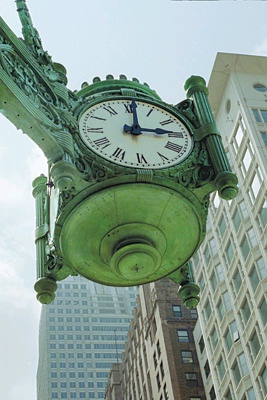All Nonfiction
- Bullying
- Books
- Academic
- Author Interviews
- Celebrity interviews
- College Articles
- College Essays
- Educator of the Year
- Heroes
- Interviews
- Memoir
- Personal Experience
- Sports
- Travel & Culture
All Opinions
- Bullying
- Current Events / Politics
- Discrimination
- Drugs / Alcohol / Smoking
- Entertainment / Celebrities
- Environment
- Love / Relationships
- Movies / Music / TV
- Pop Culture / Trends
- School / College
- Social Issues / Civics
- Spirituality / Religion
- Sports / Hobbies
All Hot Topics
- Bullying
- Community Service
- Environment
- Health
- Letters to the Editor
- Pride & Prejudice
- What Matters
- Back
Summer Guide
- Program Links
- Program Reviews
- Back
College Guide
- College Links
- College Reviews
- College Essays
- College Articles
- Back
The Timekeeper
There are moments in life when time seems to slow down, maybe even stop altogether. In happiness and loss, beauty and pain; these rare moments occur where time is cancelled out, sensing when we don’t want to world to move on. But you see, this didn’t always happen. Our time used to be evanescent, never stopping for a beat. We whirled and writhed under constant time, a continuous going on. Ever aware of our beings, never stopping to dream, to sleep. Time’s presence lived in us, never fading, and never dulling.
The story of how time began to slow begins in a dim workshop of a young man named David. His interest in clocks was merely scientific, he never truly thought of the idea of time in the machines. His father before him had shown him the intricacies of the gears, and how they made the hands move. He had shown him how to make them whirl in perfect unison, time’s symphony. Even after his father had passed, David continued to gather clocks anywhere he went, antique stores and markets and even dumpsters could occasionally produce a clock hand or two. When David and his wife bought a house, he quickly claimed the small room attached to the basement as his workshop. Clocks competed for space on the cramped wooden walls of the room. Yet, David always felt ill at ease when one of his masterpieces could not be seen. His wife consented to using their sitting room as a display for his best work. Though, at any time of the day she would never be found in there. Not with all the ticks and chimes.
As David and his wife dreamed of children, he had to leave his workshop to find a real job. Soon, his wife had produced three girls. David never felt regret that he did not have a son to pass on his love of clocks to. He loved all of his daughters; his middle one though was especially interested in her father’s hobby. The workshop seemed like a hidden place of fantasy to her. At night, she would sneak down to the room, and stroke the glossy wood on her favorite clock: an antique with carved birds on the top and a golden face. As she grew older, her father tried to teach her the inner workings of the clocks. But, she did not care for this. Instead, she would trace her fingers lightly over their delicate designs and carvings. Into the sitting room she would go and just listen to the sounds. The clocks were their own orchestra. She would wait until the short hand slid to a new hour and the chimes would sing out together.
As she listened to the sounds, she could not help but feel restless. At each tick her heart would thump, another second gone, another hour. She felt the clocks would tune her life away before she knew it.
As time went on, as she knew it would, she grew into a woman. She married and moved into her own house. As a wedding present, her father gave her the antique clock she had always admired. She placed it in her new dining room; she thought the golden workings around the face stood out nicely against the deep red walls.
And of course time moved on, and one day her father passed away. Struck with sadness, she laid still in her bed for days. Her husband moved in the room around her, leaving and then appearing again after several gongs of the clock. The Clock! How could it move on without her father, how could time pass when it she could not fathom its existence anymore. One night, she laid in bed and focused on the tick of the second hand until it was the hour of four, and the corresponding gongs rang out.
Suddenly, she jumped out of her bed and ran downstairs. She came up face to face with the wooden clock. “I just need a moment,” she said as she reached out and pinched the two hands between her fingers. They didn’t make a sound. She stepped back and dropped her arms, the hand remain fixed in their position. Then she began to cry. She cried as she sat under the unmoving clock, thinking of her father, of the past. Never once did a tick interrupt her thoughts. When the tears ceased to come, she just sat breathing for a moment. Then, she stood up and pushed the hands to start, the ticking began and she sighed, “There, we all just need a moment sometimes.”
At this point in her life she had spent so much of her time around clocks, it rivaled the amount of time she spent around people. They were connected, and that’s why the clocks seemed to understand her words and her pain. And so that is why now time senses us. It can feel our happiness and our sadness. And it can give us a moment if we need one.

Similar Articles
JOIN THE DISCUSSION
This article has 0 comments.
